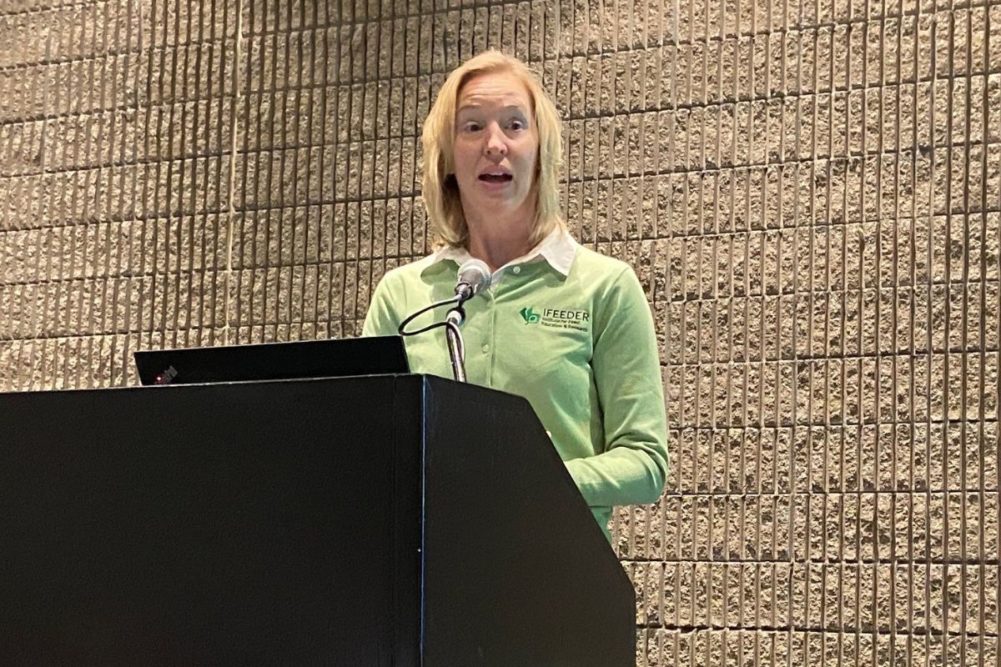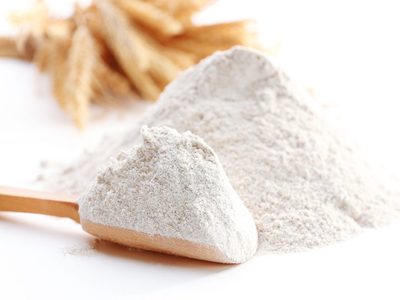ATLANTA, GEORGIA, US — A new toolkit released by the Institute for Feed Education and Research (IFEEDER) during the International Production & Processing Expo (IPPE) will help feed industry members start and maintain a sustainability program.
The Animal Food Industry Sustainability Toolkit is the culmination of 18 months of research and development, said Lara Moody, IFEEDER’s executive director, during the Animal Agriculture Sustainability Summit on Jan. 24 during IPPE.
Sustainability is an important topic for feed industry members, Moody said, according to a survey they recently completed. Relative to climate alone, feed accounts for anywhere from 30% to 70% of animal agriculture’s footprint.
“So that makes feed very significant to many of the goals and targets that downstream stakeholders are setting,” Moody said.
But it’s the whole feed value chain that is important to IFEEDER. Commodity crop producers as well as livestock producers and others downstream have a piece in the solution as well, she said.
“It’s really important in the feed sector not to put the weight on feed,” Moody said. “We have solutions, but they only work if we work with the whole value chain because of the market driven systems that have to occur.”
The toolkit provides an “on-ramp” for animal food industry members who have said they are ready and willing to support broader sustainability goals.
The toolkit materials are grouped into three stages to support those companies getting started, making progress and reporting out on their set targets and goals.
“We developed it as a step-wise approach that we call crawl, walk and run,” Moody said. “There’s a little something in there for everyone. It’s not to say those steps have to be performed in that order, but it’s a place for folks to start.”
Within the toolkit there are 20-plus resources, including how to conduct a materiality assessment, a scientific literature review of what the global feed industry has done to date to support broader environmental goals, insights into building the sustainability business case, message mapping to help members communicate their stories to their key audiences and more.
The toolkit is available for free to American Feed Industry Association (AFIA) members and IFEEDER donors on IFEEDER’s website and available for purchase to nonmembers in AFIA’s online store. AFIA members and IFEEDER donors are invited to register for a member webinar on Wednesday, Feb. 1, to learn more about how to use the toolkit.
IFEEDER will continue to add to the toolkit, Moody said. Value proposition is one area important to the industry so IFEEDER will examine if it can provide some examples or case studies of that within the toolkit.
As part of its ongoing sustainability efforts and Sustainability Road Map, which will be formally released at a late date, IFEEDER also will look to advance data quality and quantity, relative to measurement, reporting and verification.
“We want to look at where stakeholders are getting their data, what data are they using, where can we help refine the data,” Moody said. “It seems easy but it hasn’t been done yet.”
Other objectives include quantifying the innovation that the feed industry brings relative to the environment and improving the efficiency and effectiveness for the use of lifecycle analyses (LCAs).
There is growth in the number of LCAs being completed for feed ingredients but there are several variables in the methodology, she said.
“It becomes hard to compare apples to apples and oranges to oranges,” Moody said. “We’re trying to drive data into the Global Feed LCA Institute, so everyone has one place to go. We need some harmonization.”





